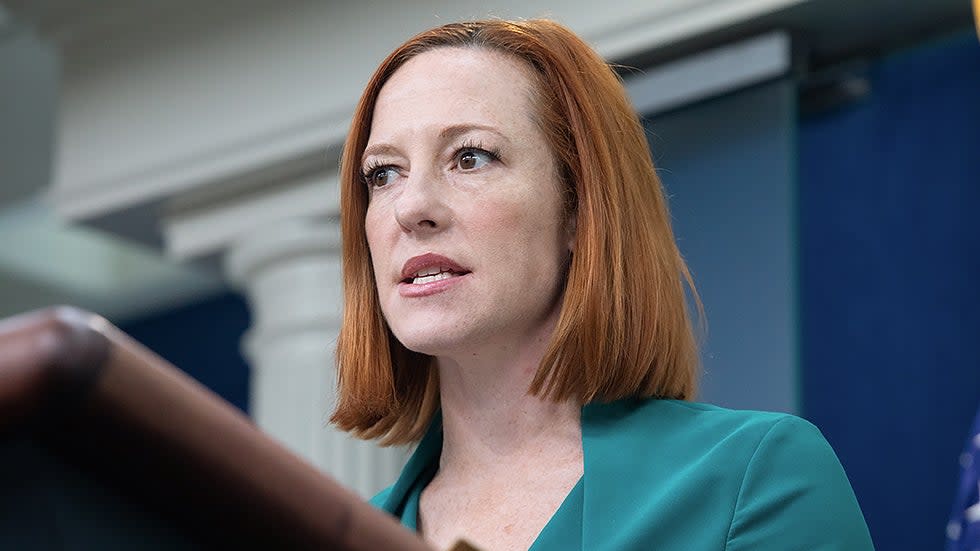Psaki addresses 'kerfuffle' among White House press corps

- Oops!Something went wrong.Please try again later.
White House press secretary Jen Psaki began Wednesday's briefing by taking questions from reporters sitting behind the first row, an unusual step that comes shortly after griping among some reporters about who gets to ask questions and for how long.
"I heard there was a little kerfuffle in here after the briefing yesterday," Psaki said with a slight smirk before opening the briefing room for questions. "What we're going to do today is we're going to start with the third and fourth row and fifth and sixth row, get more people's questions answered."
Psaki said the White House is "always happy to get more questions answered from here."
"I could go on for hours," she told reporters in the room. "But we all know you all have a lot on your plates, so what we try to do for everybody's knowledge is balance between all the things reporters and all of you have focused on ... but we also are here as people have follow-up questions."
The press secretary's comments come two days after an argument broke out among reporters at Tuesday's briefing about how quickly the session ended and who got to ask questions.
Some reporters voiced displeasure with how quickly a wire reporter seated in the front of the room had decided to end the briefing.
It has been a tradition in the briefing room for a representative from The Associated Press to indicate to the press secretary that a sufficient amount of time has passed during the briefing. That custom was scrapped during the Trump administration, when briefings were infrequent, but it has returned for the nearly daily briefings with Psaki.
Tuesday's spat underscores a frequent gripe made by reporters from smaller outlets seated near the back of the briefing room that journalists from larger news organizations such as national television networks take up an exorbitant amount of time during briefings, often asking several follow-up questions of topics of varying news value.
"They have been asking maybe five or seven different questions hitting every major news story so they get their clip of their correspondent asking about all of the major news of the day," a reporter who attends briefings regularly told The Hill late last year during another dust-up between reporters in the room.

